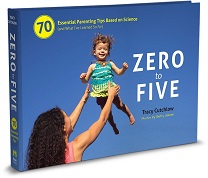
My preschooler came out of her room and stomped once. I carried her back to bed. As I turned to leave, she called out:
“When we were camping, C wanted to be alone and I kept at him, and he hurt me. He hit me first. I hit him second. Next time we go camping, I'm going to hurt C.”
“Then I'm afraid we can't go camping with C,” I said gently, hoping she would see the error in her ways (but not see I was making that up). “We go camping to have fun, not to hurt people.”
My response was typical enough of many parents, I think. Logical consequence + You're wrong + What's right x Lots of talking. And it doesn't work.
"I'm going to hit C next time!" she vowed.
This is what parenting coach Sandy Blackard means by “Children must communicate until they feel heard.” I hadn’t acknowledged my daughter’s feelings. And she was going to tell them to me until I did.
I’ve been thinking and reading about discipline a lot lately. I mean, I have a 3 1/2 year old! And I haven’t come across a more beautifully simple framework for positive parenting than Blackard’s.
She calls it Language of Listening. It has only three steps:
- Say what you see. (Say what your child is doing, saying, feeling, or thinking.)
- If you like it, name a strength.
- If you don't like it, offer a can-do. (Say what your child can do instead, including a firm boundary if needed.)
This works in, essentially, any situation. Like my daughter vowing to beat up one of her best buds. I switched gears.
“You’re mad at C.” I said this emphatically, to better match her feelings. Now, instead of arguing with me, she felt free to talk more about what happened.
“Yeah, I went to the tree and I stomped, and I kicked him.” She stomped her mattress.
“Mm-hmm.” I was partially successful at sounding impartial. “You were mad,” I repeated. I thought about strengths -- could I find something in there? I decided to ignore the kicking part, based on the concept that “you get more of what you pay attention to.” I said, “When you stomped, you knew what you needed to do to get out your anger.”
This apparently made her think of other ways to calm herself down. She said something else about hurting her friend, but then she sat up in bed and started taking deep breaths. Instead of making my escape, I joined her.
Say what you see. "Ah, deep breaths." If you like it, name a strength. "You know how to calm yourself down," I said, kissing her forehead.
“Next time I’ll be nice to C when he wants to be alone,” she said. But she sounded sad.
Then I messed it up.
Bonus at the bottom: An insight about what trips us up as parents.
“Well, sometimes we get mad at our friends,” I ventured. “It happens. It’s not OK to hit or kick or spit or call names. But it is OK to be mad. You know how to calm down.”
“It is OK to hit our friends,” she insisted.
“Good night, sweetie,” I said gently, partly because I wasn’t sure where to go from there.
I left her room. She didn’t pop out of her bed several more times as usual. She settled in and went to sleep -- hopefully lighter for having gotten that off her chest.
I asked Blackard about this conversation. She said my daughter’s defensive response (“It is OK to hit our friends”) came because I went directly into judging/lecturing mode (“It’s not OK to kick”). I hadn’t acknowledged her feeling of sadness—or even that she had come to such a great conclusion to be nice to her friend.
Instead, Blackard said, you just start again from the top. [bctt tweet="Say what you see."] “You decided to be nice to C when he wants to be alone. You sound a little sad now.” Then my daughter could have told me why she was feeling sad.
I also could have repeated the three steps when my daughter insisted, “It is OK to hit our friends.” This requires trusting that our child is making sense, Blackard says, even when it makes no sense to us. Say what you see. “Sounds like for some reason it has to be OK.”
“Imagine her answer to that!” Blackard said. “It could take you straight to the root of the problem that she was trying to solve with hitting, or open up a completely different line of thought. You never know. And ‘not knowing’ is right where you want to be with kids so the answers can come from them.”
Ah, yes, the answers need to come from them. In Zero to Five: 70 Essential Parenting Tips Based on Science, I talk about the importance of engaging kids in problem-solving. I explain why lecturing to our kids is pointless. On top of that, acknowledging emotions before doing anything else is a major theme in my book and in my parenting philosophy. But sometimes, in the moment, we revert.
That’s one reason I dig Language of Listening: it’s easy to remember. “Say what you see” just pops into my head. I’m not always certain of what then pops out of my mouth. But that’s OK.
“Listening and acknowledging strengths is so powerful for children,” Blackard says, “that even a little creates enough connection and emotional safety for a child to stay in bed and drift comfortably off to sleep, as you just saw.”
Blackard encourages us not to overthink it.
“Say What You See isn’t meant to make you think hard,” she says. “It is pretty much ‘in through the eyes and out through the mouth’ objectively. That’s getting present and where the magic of stepping inside your child’s world occurs. You quickly realize things that you would have missed if you were mentally busy trying to ‘figure out’ what to say or do. You can figure out everything more effectively later, after you see the child’s perspective.”
I appreciate that. However, something else Blackard said made me think hard. Get my insight about what trips us up as parents.



























